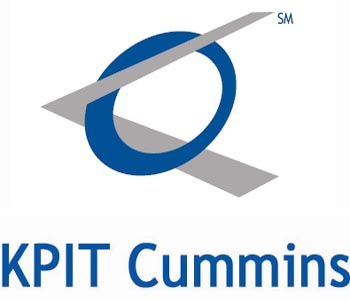
By being frugal, Jugaad innovators not only make cost
effective business models but also pass it on to the consumers by providing
them with cost effective products and services. Rather than sticking on to what
they know and what they can provide, they try and workout ways to help the
consumers solve their problems.
In 2010, KPIT Cummins Infosystems, an Indian engineering and
IT services provider launched Revolo. It is a low-cost plugin parallel hybrid
solution for cars. It is a brain child of Tejas Kshatriya, who worked at KPIT
Cummings. This idea struck him when he was waiting at a crossing for the signal
to turn green. What Revolo does is, it converts kinetic energy generated by
applying the breaks into electricity and stores it in the battery. This can be used
later on to power the car.
The conversion kit consists only of a rechargeable battery
pack, an electric motor and a pulley. It can be retrofitted in just six hours
by a KPIT Cummings certified mechanic. It can be fitted into most of the car
irrespective of the manufacturer and the model, without hindering with the
maker’s original transmission configuration.
This Jugaad innovation when tested, it showed that the car
used 35% less fuel and a direct reduction of 30% in green house gases. The
system is ideal for cities where there are a lot of stop and go situations
where the use of break is very high.
Jugaad innovators do not spend time in labs and offices
thinking about what their consumers are looking for, they rather go out, meet
and discuss with them to know the room for improvement. Only then they can zero
down on the most important features that are most relevant to the consumers.
Another such Jugaad innovation can save lives of millions,
especially in the emerging markets where health standards are very poor. 2
crore babies are born prematurely or with low birth weight each year. 40 lakh
of them cannot make it and they die, mostly in the developing nations. A simple
solution to this is the incubator. This device is either expensive or risky
(the low cost device where the babies are exposed to light bulbs). To
understand and solve this problem Jane Chen, Linus Liang, Naganand Murty and
Rahul Panicker co-founded Embrace.
After producing an initial prototype, a stripped down
version of traditional incubators, they traveled to Nepal to test their
innovation. While being on the field they realized that most of these deaths
occur when the baby is delivered in villages or at homes. The team armed with
this insight went back to the drawing board and rethink who exactly are their
consumers. The outcome was a portable infant warmer that looks like a tiny
sleeping bag and gives mothers greater mobility and more intimate contact with
their babies. Therefore it is named Embrace.
The portable infant warmer costs just Rs. 10000, that’s
nearly 1% of cost of incubators available in Western countries. In 2011, Embrace piloted this product in
India, where 12 lakh premature babies die each year. An initial study validated
Embrace’s safety. They then took a more extensive clinical study of 160
premature babies.
Innovators usually fall in love with their initial design
and do not change as per the consumers’’ requirements. Unlike those, Embrace
today is experimenting with prototypes that will not require the electricity at
all and it can be heated with only hot water. It is also currently negotiating
partnerships with multinational medical equipment companies like GE to
piggyback on their extensive distribution network. Embrace has set itself a
bold target of saving the lives of over 1 lakh babies over the next three years
as well preventing illness in over 7 lakh babies.




Comments
Post a Comment